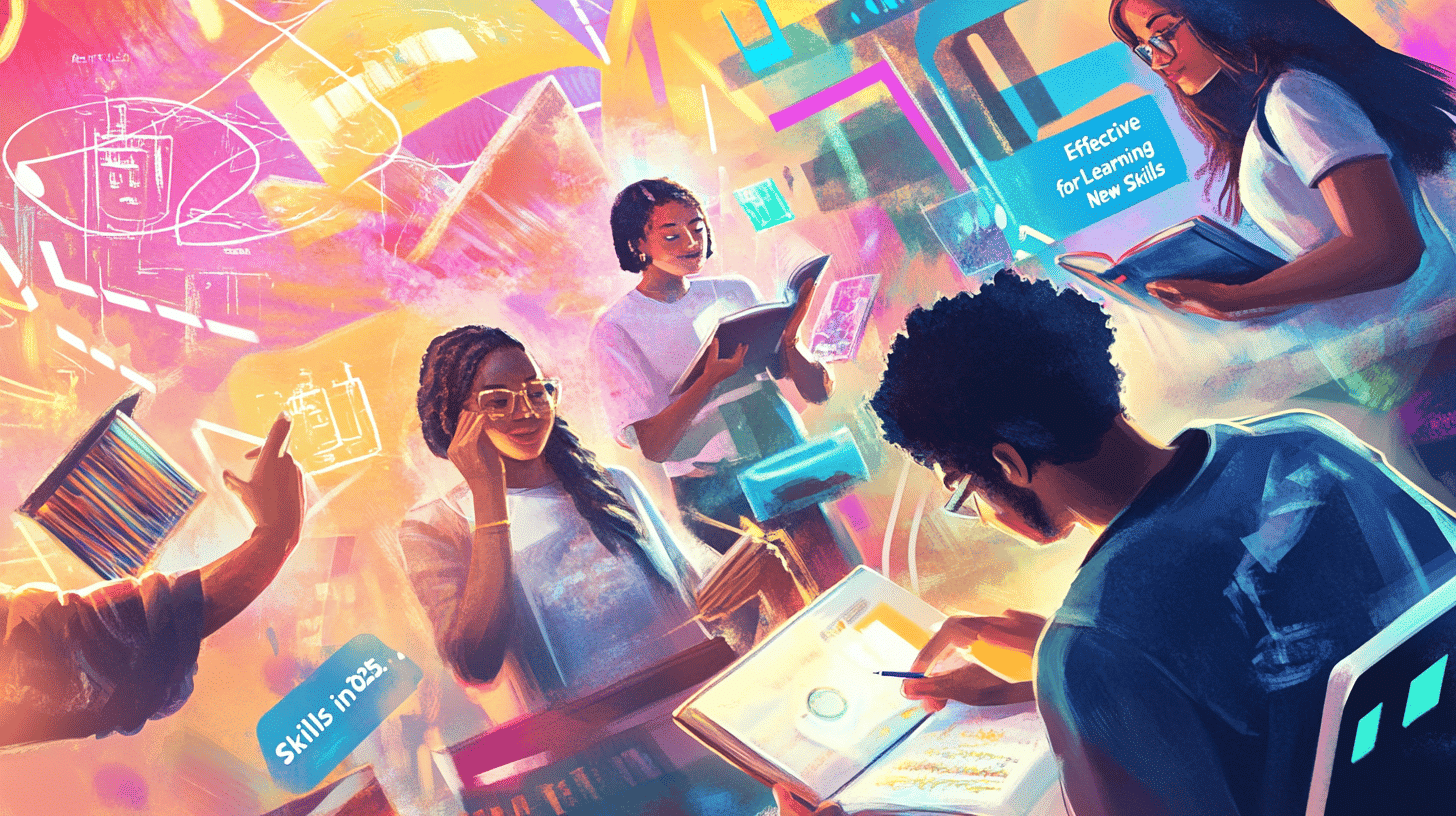Learning new skills is a never-ending journey, and with each passing year comes new opportunities and tools to help you along the way. Whether you’re interested in developing yourself personally or professionally, it’s crucial to adopt effective approaches to maximize your learning. In this post, we’ll explore several strategies that can help you learn more efficiently and enjoyably.
Setting Learning Goals
First of all, it’s essential to understand the importance of setting clear and achievable goals. If you want to learn something new, such as playing a musical instrument, learning a new language, or improving your professional skills, set specific goals. Ask yourself: – What exactly do I want to learn? – Why is this important to me? – What steps can I take to achieve this goal?
By setting your goals, you increase your chances of success and give direction to your learning.
Choosing the Right Approach to Learning
There are many ways to learn, and the best approach depends on the type of skill you want to develop. Here are some options you might consider: – Online courses: Platforms such as Coursera, Udemy and Khan Academy offer a wide range of courses in different areas. Choosing a structured course can make it easier to assimilate complex content. – Books and e-books: Reading is a great way to learn. Investing in books that specifically address the topic you want to study can provide deep insights and a more comprehensive understanding. – Webinars and workshops: Attending workshops and webinars can be a great way to learn from experts and interact with peers who share similar interests. – In-person classes: If you feel more comfortable in a classroom environment, considering taking classes at a school may be a great option. This also allows for direct interaction with teachers and classmates. – Independent studies: If you are self-taught, you may choose to learn independently by seeking information and resources online or in libraries.
Integrating Practice into Learning
Practice is a vital part of learning, especially when it comes to practical skills. It’s not enough to simply read or watch videos; you must apply what you’ve learned: – Set a practice schedule: Set aside a specific time in your daily or weekly routine to practice the new skill. This helps create a habit and solidify your learning. – Experiment and refine: When practicing, don’t be afraid to make mistakes. Through them, you will discover what works and what needs to be adjusted. Learning from mistakes is an important part of the process. – Seek feedback: If possible, seek feedback from people who are more experienced in the skill you are trying to learn. They can offer valuable guidance to help you improve.
Using Technology to Your Advantage
Technology has revolutionized the way we learn. There are countless tools that can facilitate and accelerate your learning process: – Learning applications: There are several apps available that offer language practice, math exercises, programming tutorials, and more. Examples include Duolingo for languages and Codecademy for programming. – Video platforms: Sites like YouTube have a multitude of tutorials and classes that can complement your learning. Look for specialized channels and subscribe to those that best suit what you are learning. – Online communities: Join communities, forums, and interest groups on social media. Shifts in learning focus can occur naturally, and being around others can give you a new perspective on what you’re learning.
Making Connections with Knowledge
When you come across new knowledge, make connections with what you already know. This makes learning more meaningful and lasting: – Create mind maps: Using mind maps can help you visualize how your new skills relate to what you’ve already learned. This not only makes it easier to remember, but it also helps you organize your knowledge. – Connect the concepts: When learning, try to relate new information to your prior knowledge. This will result in a more powerful understanding and help you retain the information for longer.
Staying Motivated Along the Way
Motivation is a key factor in learning. Here are some tips to keep it high: – Celebrate progress: Recognize and celebrate your successes, even if they are small. This will make you feel accomplished and motivated to continue. – Establish an enabling environment: Create a distraction-free study space where you can fully focus on what you are learning. – Learning variations: Changing the way you learn can help you avoid boredom. Try different learning methods and you'll keep your interest alive.
Conclusion
In a world that is constantly evolving, learning new skills has never been more important. Adopting effective strategies can help you succeed in this journey. By setting goals, choosing the right approach, practicing consistently, and staying motivated, you can transform your learning into an enriching experience. Now, it’s your turn! What skills do you want to learn by 2025? Let us know in the comments your goals and how you plan to achieve them. Together, we can foster a collaborative and motivated learning community!



